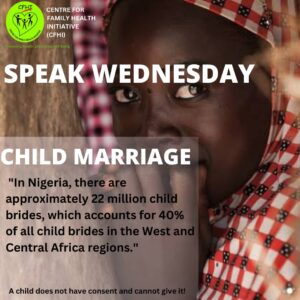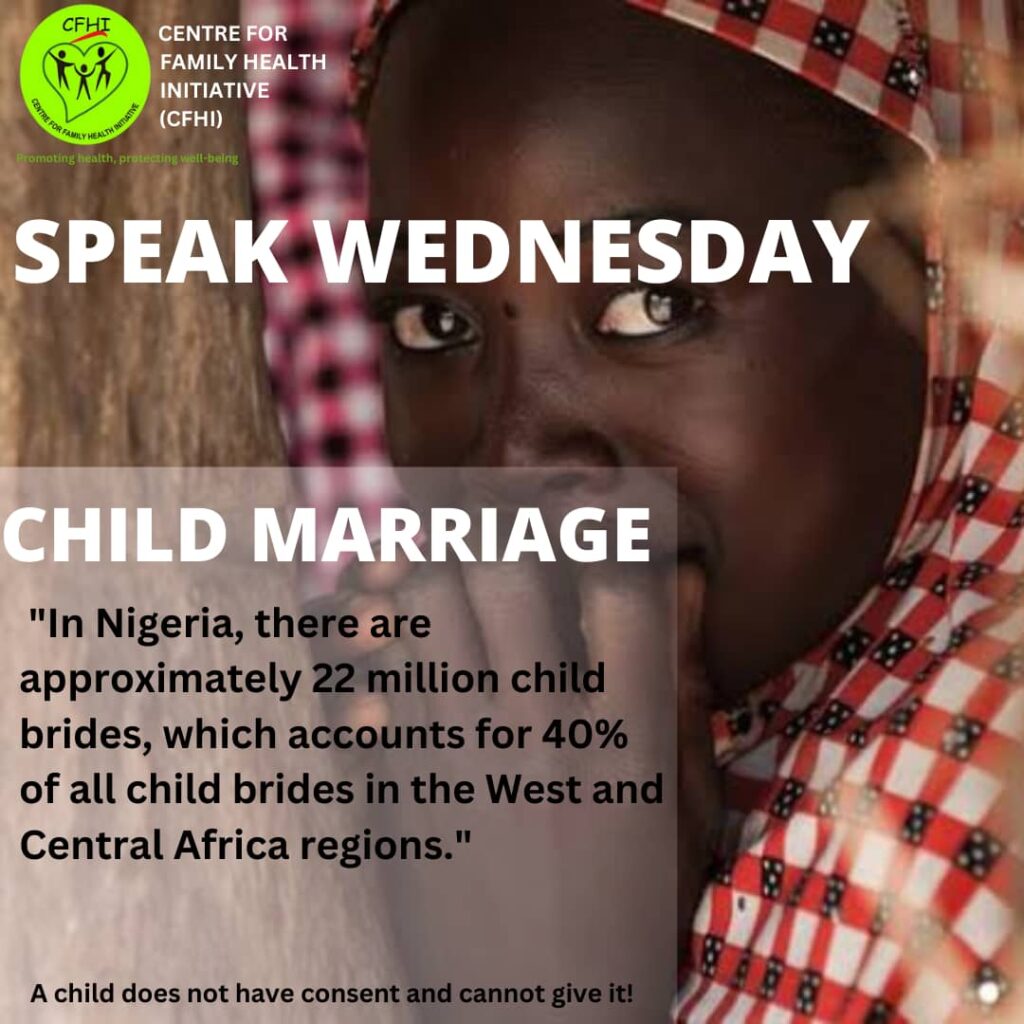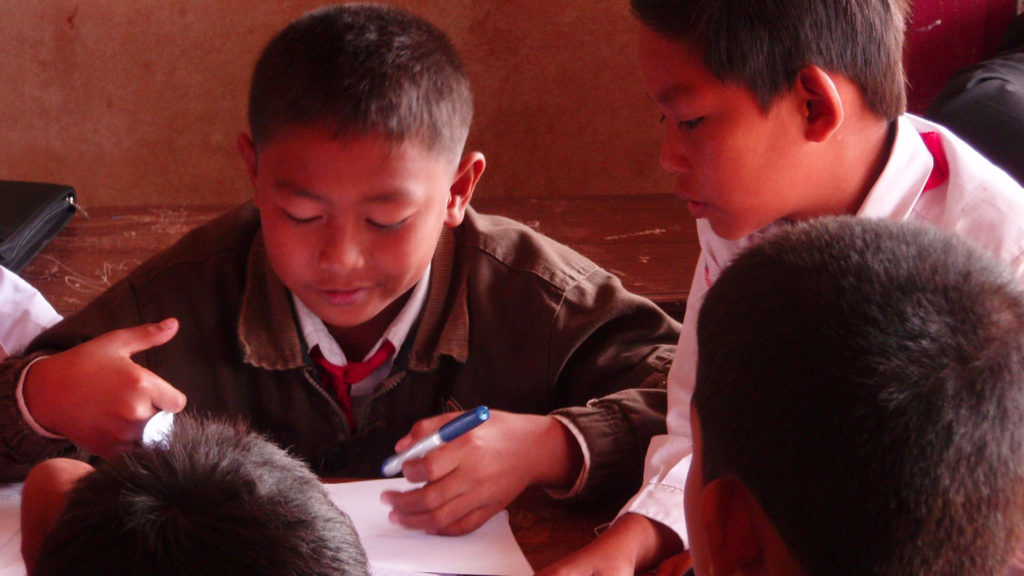“I woke up before everyone that fateful morning, excited about my supposed first day at school. My mother told me I could follow my brothers that day, but my father disagreed with her. He was angry that I was dressed to leave for school. He ordered me to go back to my room, that school is not necessary since I would be married off the next week. I was only eleven years old. I felt bad because I wanted a chance to sit with my mates in a classroom. I wish my mother had enough strength to defend me. Ever since I was married off to my husband who died 12 years later, I never saw the four walls of a school. Not because I didn’t want to, but ever since my husband died, it has been from one challenge to another for me and my 3 children”. ~ Amina.
This is one of many similar stories in Nigeria about child marriage. According to UNICEF, child marriage refers to any formal marriage or informal union between a child under the age of 18 and an adult or another child. Nigeria, as the most populated country in the region (West and Central Africa), has the most child brides. Nigeria is home to an estimated 22 million child brides, accounting for 40% of all child brides in the region.
While child marriage is frequent in Nigeria, research shows that the North West has the highest rate (76%), followed by the North East (48%), North Central (35%), South-South (18%), and South East (10%).
Poverty, gender disparity, social norms and practices or religious regulations, and inadequate legislative laws are the key causes of child marriage.
It is a form of human rights and child abuse that deprives a girl child of a healthy upbringing, an education, and a future.
Other negative effects of child marriage on girls include • early pregnancy, which often leads to complications such as Vesico Vaginal Fistula; • risk of domestic abuse; and • financial dependence on their husbands.
Can A Child Give Consent?
The Universal Declaration of Human Rights states that consent cannot be ‘free and full’ when one of the parties involved is not sufficiently mature to make an informed decision about a life partner.
A child does not have consent, and cannot give it.
To put an end to child marriage, Nigeria needs effective legal reforms, including actions to implement the Child Rights Act and other laws that protect a child’s best interests.
Furthermore, education is a crucial strategy in combating child marriage in a culture, particularly in local societies where ignorance is widespread. It is also critical that the government implement the concept of free basic education for all children in all states, as this will create a shift in attitudes and practices regarding child rights, as well as empower the girl child in terms of life skills and support.
Lastly, in these civilizations where girls are given in marriage, there needs to be a paradigm shift in terms of social and cultural standards. Public education on children’s rights and the detrimental effects of child marriage on children and society at large can help achieve this.
GIRLS, NOT BRIDES.
Speak Wednesday is an initiative of CFHI to address issues around gender-based violence and gender bias.
#SpeakWednesday #ChildMarriage #GirlsNotBrides #Women’srights #genderequality #genderbias



